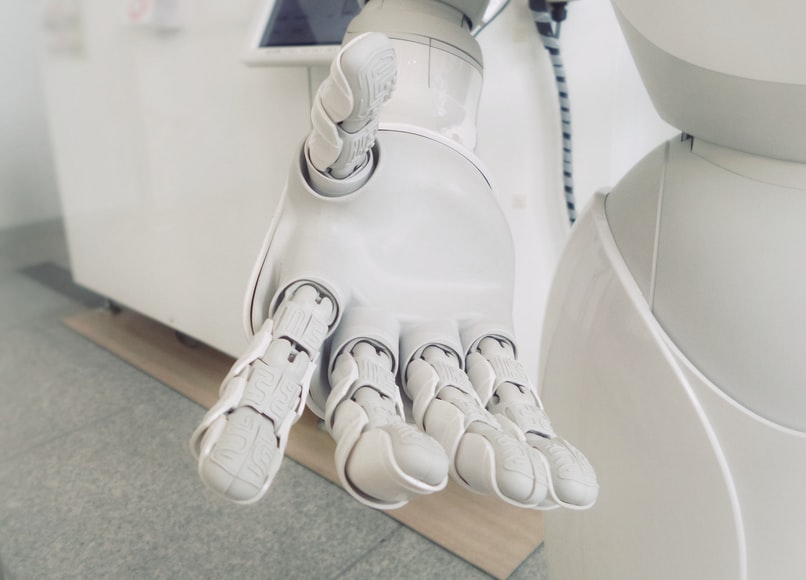Humans continue to grow and gain new technology grounds, with the technological development of Artificial intelligence being the next step for humanity. This tech holds numerous opportunities for improving educational delivery and efficiency, with more educators and students having access to digitized classrooms. The world once taught AI science fiction, but now it is a reality and plays a crucial role in EdTech. This article provides information on the perks and pitfalls of using artificial intelligence in students’ education.

Contents
Pros of Using Artificial Intelligence in Education
Immersion of Virtual Reality
Many students are virtual learners, and using Virtual Reality and online learning platforms in learning taps effectively into this situation and also you can get Online assignment help. This tech provides scholars with visualizations and an immersive environment to learn and master simple to complex materials. Pupils in med school can take classes on precision surgery without its dangers. Employing VR in educational institutions makes learning more effective.
Artificial intelligence in education can help teachers create an interactive environment for learning about history and crucial science or social concepts, offering students the opportunity to buy a research paper online, which can further enhance their understanding and retelling of these subjects or issues.
But virtual reality technologies can develop students’ imagination and inspire them to create exciting papers without using a written service. Students love teachers who are in trend and apply modern technology in their lessons. AI powered childcare software is one example demonstrating how AI is transforming education even from early childhood.
Personalized Learning
Before the advent of online classrooms, achieving personalized learning was challenging for teachers. Teaching while rigidly adhering to the curriculum instead of being flexible to accommodate their student’s strengths and weaknesses were rampant. Thanks to AI, educators now quickly provide their pupils with a lesson tailored to match them easily. As a reflection of the innovative technology appliance, a lot of teachers often use the Studocu, where educators can store their lesson plans and find them at once if needed to host a lesson.

Intelligent Moderation
Gathering and analyzing data can be challenging, especially when your subject is a large group. Intelligent moderation helps educators navigate this ordeal. Using AI tech, tutors can quickly analyze their students’ data, improving classroom efficiency.
Gamification
Artificial intelligence is fascinating, and employing it in your course as a tutor can 1help improve student engagement levels. Another element that picks pupils’ interest is gaming. Teachers can enhance learning by incorporating their lessons with some of its attributes (Gamification). AI provides a perfect platform to achieve this feat, leading to higher participation and retention from scholars
Empowering the Differently-Enabled
Many students with special needs encounter various challenges when trying to keep up with the traditional learning curriculum. Several AI programs can support these students, helping to ease the learning process and empower those with different abilities. These programs enable students to take exams or tests independently, with minimal assistance. Test materials, such as Microsoft SC-400 Practice Test Dumps, can also be beneficial in such cases, providing additional support.
Translation Assistance
Language is a significant barrier to effective learning, with non-native speakers finding it challenging to learn in foreign languages. Many scholars often employ apps to help with translations, but this method has numerous shortcomings.
Machine translation software offers a superior and seamless solution, helping to bridge the language gap between non-native speakers. Students can read a book from a virtual library without worrying about an alien language being a stumbling block to learning or research work. This fascinations in technological developments are possible and due to the high quality data that ML specialists use for training the AI-models.

Cons of Using Artificial Intelligence in Education
Despite adding numerous perks to the educational sector, employing artificial intelligence in education has its pitfalls. Here are potential cons that accompany using this tech in teaching.
Expensive
The cost of AI technology is a significant drawback to its application in education. It’s expensive to set up and maintain, with most prominent educational institutions having access to it. The fact that many regions don’t have access to this technology also hampers its implementation in learning.
Poor Personal Connection
Humans are social beings with a need to develop social bonds. Excellent physical communication and interaction between students is an integral element needed to prepare students for the world outside the University or college. EdTech doesn’t facilitate provisions to build personal connections.
Pupils miss out on an opportunity to build their communication skills and create new bonds. The lack of personal connections also poses the threat of poor rapport between tutors and students. Such a situation could lead to teachers missing crucial points or dilemmas in their pupils’ experience.
Reduction in the Demand for Tutors
One of the disadvantages of artificial intelligence in education is the potential to reduce the demand for tutors. Many teaching assistants are in danger of losing their jobs as they become irrelevant in the classrooms. Implementing AI tools can transform educational practices significantly. For example, educators can summarize your video with AI, granting teachers and students quick access to key lecture materials. This allows for more efficient use of class time and individual study sessions by swiftly reviewing highlights of lengthy classroom recordings or educational videos. There’s a significant increase in the amount of pupils teachers can take on a course. Also, Utilizing AI-powered technology ensures consistent high learning efficiency levels regardless of class size. Online certification platforms such as Microsoft Az-900 Practice Test Dumps also contribute significantly to this educational landscape. Implementing AI tools can transform educational practices significantly.
Final Thoughts
AI technology will inevitably become a critical part of the learning process, especially at tertiary educational institutions such as colleges and universities. Educators can’t ignore the benefits it brings to the table, as it’s a critical element in improving education. But, they’ll have to find solutions to curtail and manage its shortcomings.

























 Email
Email SMS
SMS Whatsapp
Whatsapp Web Push
Web Push App Push
App Push Popups
Popups Channel A/B Testing
Channel A/B Testing  Control groups Analysis
Control groups Analysis Frequency Capping
Frequency Capping Funnel Analysis
Funnel Analysis Cohort Analysis
Cohort Analysis RFM Analysis
RFM Analysis Signup Forms
Signup Forms Surveys
Surveys NPS
NPS Landing pages personalization
Landing pages personalization  Website A/B Testing
Website A/B Testing  PWA/TWA
PWA/TWA Heatmaps
Heatmaps Session Recording
Session Recording Wix
Wix Shopify
Shopify Magento
Magento Woocommerce
Woocommerce eCommerce D2C
eCommerce D2C  Mutual Funds
Mutual Funds Insurance
Insurance Lending
Lending  Recipes
Recipes  Product Updates
Product Updates App Marketplace
App Marketplace Academy
Academy

